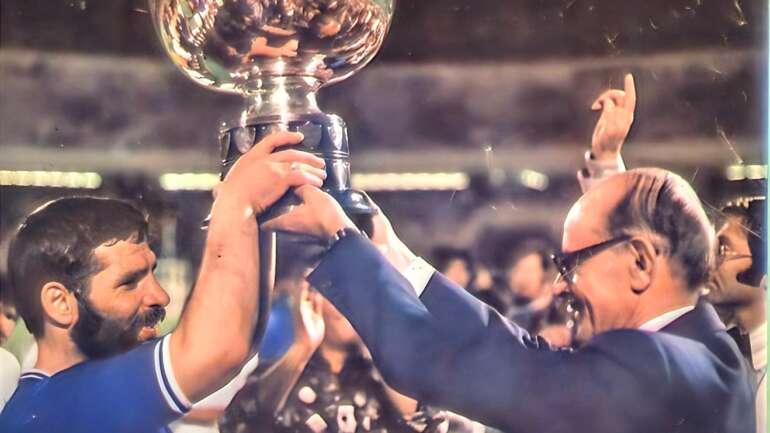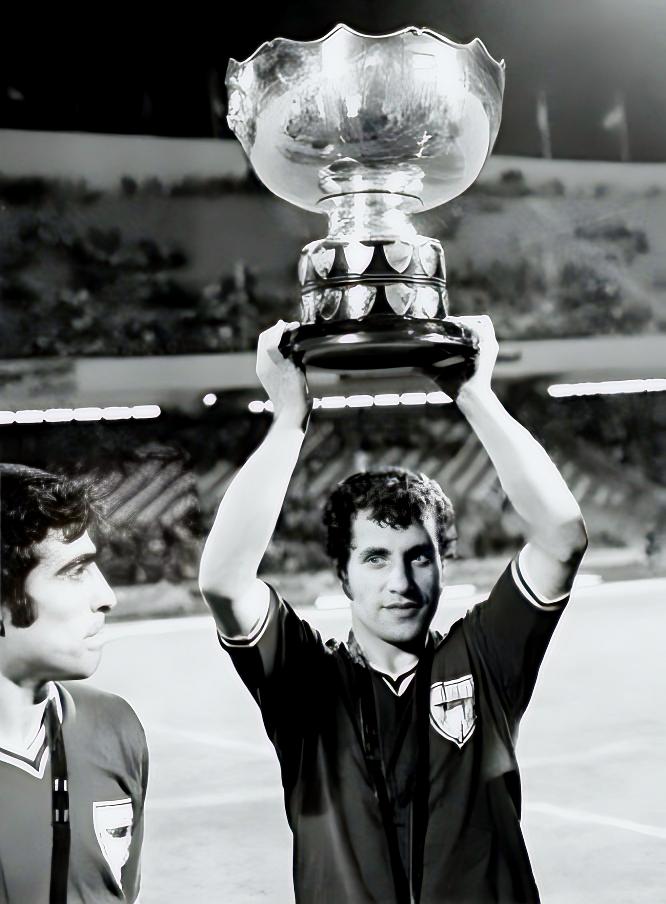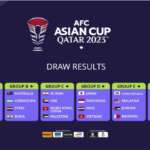The draw for the 18th edition of the AFC Asian Cup, the quadrennial international men’s football championship of Asia organized by AFC was held hours ago in Doha, Qatar.
The Main football championship in Asia is delayed by over a year due to a combination of AFC short-sightedness and the unreliability of the Chinese authorities. China was supposed to hold its second AFC Asian Cup tournament after the successful one in 2004 but a series of events and circumstances surrounding COVID lockdown in China has meant that the most prestigious tournament of the continent was not going to be held in China. Qatar, as reliable as ever, and beaming from the fresh success of golding the biggest tournament in the World, FIFA World Cup 2022 came to the rescue.

The draw ceremony was held with the coaches of all teams present. Amir Ghalenoei is experiencing his second presence in the AFC Asian Cup since his lone appearance in Malaysia back in 2007. Ghalenoei hops for a much more successful tournament this time to compensate for the bitter failure in Malaysia. Iran has failed to lift the trophy since it won it three times in a row in 1968, 1972, and 1976., Also present was the ever-familiar face of Carlos Queiroz who failed to lift the trophy with Iran in two attempts in 2015 Australia and 2019 UAE. This time the Portuguese coach will try with Qatar who are now the defending champions.
However, Ghalenoei’s mission is far from easy as his biggest challenge remains in dealing with an aging team left by Queiroz. Iran was the oldest team in the last World Cup.
In Group C, Iran is joined by familiar opponents in UAE, Hong Kong, and Palestine. This is on paper at least. one of the easiest groups of the Asian Cup for Iran in recent tournaments. None of the three teams have managed to defeat Iran in an official competition, although the UAE managed a win in Abudhabi in a friendly 26 years ago in September 1997.
| TEAM | MP | W | D | L | GF | GA | GD |
| UAE | 18 | 14 | 3 | 1 | 26 | 4 | +22 |
| HONG KONG | 6 | 6 | 0 | 0 | 14 | 1 | 13 |
| PALESTINE | 6 | 3 | 3 | 0 | 16 | 4 | +12 |
| 30 | 23 | 6 | 1 | 56 | 9 | +47 |
Barring a disaster, there is little doubt that Team Melli will make it through to the knockout stages that Iran has always managed to qualify to expect in Japan back in 1992. The problem starts at later stages with stronger opposition. Iran will remain one of the top contenders for the title with Japan remaining the favorite, followed by Australia and South Korea.

Despite the games not starting until December, Ghalenoei might consider that as not adequate time to create a strong team that can challenge East Asians. Such is football nowadays, that preparation times for national teams are quite limited specifically for those national teams that have players playing abroad in Europe. There is no excuse for Team Melli as there are teams in worse conditions than them so that needs to be addressed and not to be used as an excuse. A major big challenge with Ghalenoei, however, is the administration.
The FFIRI is not exactly a beacon of outstanding management nor is it even a proper organization ruled by processes and planning. It is run by a group of ill-qualified personnel placed there based on their allegiance rather than competency. and if Ghalenoei needs to get things done, there will have to be a lot of personal effort and sacrifices as this football federation is unreliable and incompetent as ever. Last time over, Ghalenoi was more frustrated with the organization than anything else which lead to his early resignation from his post after the quarter-final elimination in Kuala Lumpur in 2007. Perhaps, this time over, his diplomacy, experience, patience, and older wiser age will make him much more capable to handle the difficulties and hardships. Perhaps this coach after so many failed attempts by his predecessors, can fulfill a mission that has eluded this soccer-mad nation for 47 years.

